
Swami Vivekananda’s proficiency in French is a documented fact. In Exposition Universelle held in Paris in 1900, he spoke on “highly technical matters before a gathering of scholars”in French.1 A news item published in the Indian Mirror on 12 December 1900 mentions that he delivered “a very impressive and eloquent speech in French at Paris.”2 During this period, he gave an interview to the French newspaper La Liberte.
La Liberte published this interview titled ‘Eastern Interviews: Swami Vivekananda’ on Mardi,3 11 September 1900. Jacques Bonzon, evidently a reporter affiliated to the paper, interviewed the world renowned sannyasin from India. Swami Vivekananda answered questions on a wide range of subjects— monasticism in India and its hierarchy, finding a guru, monastic vows, monastic community and leaving monastic life; caste system in India; evolution of religion in India; God, Nature, Soul; superstitious cult and miracles; polygamy, the ideal of womanhood; and organisation and education in the West.
The interview:
EASTERN INTERVIEWS
Swami Vivekananda
India is taking revenge. For four centuries, Christian Europe has been sending her missionaries who, by their own admission, have left her quite resistant.
India, today, wants to convert its converters. The other evening I had a conversation with a Hindu missionary, Mr. Vivekananda, who is going to preach sound doctrine throughout the world and who has stopped for a few months in France.
This story is from the September 2022 edition of The Vedanta Kesari.
Start your 7-day Magzter GOLD free trial to access thousands of curated premium stories, and 9,000+ magazines and newspapers.
Already a subscriber ? Sign In
This story is from the September 2022 edition of The Vedanta Kesari.
Start your 7-day Magzter GOLD free trial to access thousands of curated premium stories, and 9,000+ magazines and newspapers.
Already a subscriber? Sign In

Panchakroshi Parikrama of Varanasi
At the snow-capped Kailas, the Divine Lord Shiva was seated with Mother Parvati.
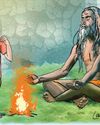
Gadai and the Monks
A fictional narrative based on incidents from the childhood of Sri Ramakrishna.
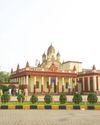
Chintayo momo maanosho Hori...
Sri Ramakrishna loved songs. There probably was no normal day when he did not sing some songs.
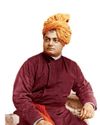
The Vedanta Vaccine
The world is still struggling under the impact of the pandemic due to Covid-19 for the last three years.
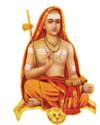
Chandrakirti's Chariot: Self in Madhyamaka Buddhism and Advaita Vedanta
The goal in Advaita Vedanta is the cessation of suffering and the attainment of true fulfillment. Suffering, according to this school, is due to ignorance of the true nature of the self and consequent erroneous identification with the body-mind.
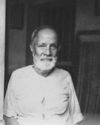
Reminiscences of Sargachhi
Question: यद्यदाचरतत श्रेष्ठसतत्तदरेवरेतरो जनिः। ‘Whatever a superior person does, others do the same thing!’ (Gita 3:21) – What does this statement mean?
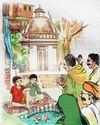
THE AUTUMN FESTIVAL
A fictional narrative based on incidents from the childhood of Sri Ramakrishna.
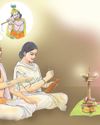
Bards of Guruvayur: Vilwamangalam II
Saints of India
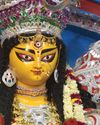
In the Universal Mother’s Divine Playground
Swami Vivekananda never taught the worship of Mother Kali. In a letter to Mary Hale he writes, “Kali worship is not a necessary step in any religion.
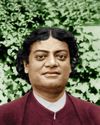
Swami Vivekananda: A Sportsman Par Excellence
In various books and articles, Swami Vivekananda has been called a spiritual leader, a prophet, a patriot, a social reformer, a philosopher, a yogi, a writer, an orator, an educationist, a musician, and so on.